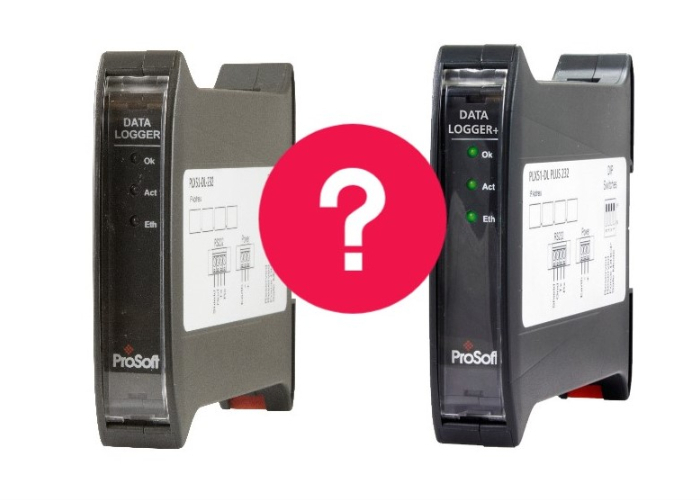Data Logger and DLplus: Which is Best for your Application?

Data Logger and DLplus: Which is Best for your Application?
Industrial data loggers are used in multiple applications, including process automation, utilities (Water and Wastewater, Energy), and research and development. Data loggers are used to record and store information locally. This recorded information – called time-stamped events – may be used for a number of reasons, including diagnostics, ensuring no holes in data due to loss of communications, predictive maintenance, and long-term performance analysis for efficiency improvements.
The key features for a data logger are:
- Certified to operate in an industrial environment
- High capacity and accuracy
- Easy retrieval of logged data
ProSoft has two types of data loggers. They are very similar with one major difference – recovery of the logged data. The basic Data Logger module requires manual intervention to recover the logged data. The advanced module, DLplus, includes a webserver and supports auto retrieval of data via an integrated REST API interface.
Data logger use cases
Which of these two data loggers is best for your application? Let’s look at some use cases to answer this question.
Assume an OEM has designed a specialty machine. They have several of these machines installed with different customers. Based on market feedback, they are considering the next generation of this specialty machine. A key criteria for the next gen is to improve efficiency. Their customers will not allow them to connect remotely and collect performance data due to security concerns. The OEM knows that machine performance data from real-world use is critical to improving efficiency. In this case, the basic high-capacity Data Logger module is ideal. This data logger can store >16 million records with millisecond resolution and supports multiple protocols. The records are stored in a convenient CSV file that can be retrieved by connecting to the data logger module.
Another example is a system integrator who wants to add value by providing a monitoring service that will allow their customers to access critical operational parameters anytime, anywhere. To provide this service, the system integrator needs access to time-stamped data continually so that the user information is current. In this case, the advanced DLplus module with the integrated REST API interface is the ideal solution. The REST API feature means a third-party software product like OSI Pi, SQL, or Historian can interrogate the DLplus module directly, request data, and backfill trends or update alarm lists or dashboards.
The Data Logger and DLplus have several common features – high capacity, high speed, and support for multiple protocols. The DLplus supports automatic retrieval of data via the REST API interface. Both of these modules are great for applications where users want time-stamped data for diagnostics, improving process efficiency, or an accurate picture of site activity when there is a communications failure. Choosing the correct data logger module depends on the application.
Click here to learn more about both data logger modules, and other remote access solutions.

